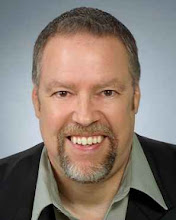Makers and Takers (book review/J. Colannino)
Communication is the giant part of knowledge management. Without communication, there is no corporate knowledge, no learning organization, and ultimately, no organization at all. Amazingly, those who ought to know better engage in actions that are destructive to both the organization and one's self. What actions am I referring to? The inability to disagree agreeably. Creative tension is vital, but one cannot cross the line to ad hominem attack. Ideas should be critiqued, not people. Yet, there is a huge ideological polarization today between neoconservatives and modern liberals that I have observed to shut down communication. When ideology trumps facts, we have a problem. Here is what I mean.
Compared to modern political liberals, it is apparent that conservatives are more selfish, greedier, lazier, less emotionally satisfied, and more politically ignorant; this is echoed in television news media and programming: in 2003, McIntosh et al examined 124 political characters in 47 popular films spanning five decades -- they found that liberal characters were portrayed as smarter, friendlier, prettier, and more noble. However, as Peter Schweizer shows, a dispassionate examination of actual scientific evidence shows exactly the opposite and by a wide margin. That is, conservatives are far more generous and give much more to charities for the needy. Additionally, conservatives work harder, are emotionally better-adjusted, and are much better informed regarding the political issues and general knowledge. But how would one REALLY know? Actually, liberals and conservatives say so themselves in extensive scientific survey data.
Well, perhaps liberals are just being more honest and self-critical. No. As a statistician myself, this is something I know a bit about. For example, we can check for consistency by rephrasing questions and interspersing them throughout the survey; we can make truth telling more palatable by keeping responses anonymous; and we can ask questions designed to ferret out duplicity (such as asking for strength of agreement to statements such as "I have never told a lie" -- which oddly enough is answered "false" if you are true and "true" if you are false). Finally, we can separate the wheat from the chaff using various statistical tests. In these ways, scientific survey methodology is a dependable and mature discipline.
Schweizer examines seven main areas in as many chapters: 1. The Mighty Me (selfishness); 2. Think Globally, Sit on Your Butt Locally (generosity); 3. Liberal$ and Money (envy and sloth); 4. The Whole Truth and Nothing But (honesty); 5. Anger Management (emotional disposition); 6. Mind Wars (knowledge); and, 7. Whine Country (complaint). The 258 page book also has an introduction, conclusion, notes, and an index. In all of these major categories liberals flunk resoundingly compared to conservatives.
As examples, consider the following. Should you always help a friend in need -- conservatives, 95% Y; progressives 79% Y. Did you do volunteer work last year -- conservatives, 44% Y; liberals 39% Y. Do you aspire to be rich -- liberals, 61% Y; conservatives, 51% Y. People can get ahead by working hard -- conservatives, 75% Y; liberals 14% Y. It is morally wrong to cheat on your taxes -- conservatives, 86% Y; liberals, 68% Y. I have been angry with someone in the last five days -- liberal, 27% Y; conservative, 14%. Knowledge: e.g., Is Al Gore Jewish (he is not); liberals 12% Y; conservatives, 1% Y (similar trends hold for general education and economic knowledge). Spiritual beliefs: I believe in ghosts -- liberals, 42% Y; conservatives, 25% Y; we can communicate with the dead -- liberals, 43% Y; conservatives, 29% Y; God is important in my life -- conservatives, 70% Y; liberals, 40% Y. Outlook: Life is exciting -- conservatives, 54% Y, liberals, 43% Y; I am very happy -- conservatives, 45% Y, liberals, 30% Y; I love my job -- conservatives, 53% Y; liberals, 41% Y.
Well, that is all very interesting, but the question remains, Why? Schweizer answers that liberals are essentially self-absorbed. They are all about feeling. Objective reality is secondary. "Caring" for the needy is good enough -- no need to actually help the needy. Whining about injustice is good enough, no need to actually do something about injustice. Subjective "knowing" is sufficient, no need to objectively check facts. God becomes "God to me..." truth becomes "truth to me..." reality becomes "reality to me..."
By now, the reader may be conjuring all sorts of anecdotal evidence that leads in the opposite direction. Let me help. Paul Newman was unabashedly liberal and very generous in his charitable giving. In fact, his foundation continues to give to the needy and disadvantaged, even after his death (over $250 million, cumulative to date). During his lifetime, he made no show of his charity; in contrast to his very public performances, here he practiced a quiet humility . He was clearly an intelligent man. Moreover, his profession, acting, is one that requires keen intelligence to do well because one must assume the role of the other, as sociologists say. Indeed, one can think of many actors and entertainers who are clearly liberal in their thinking and above average intelligence. In fact, there are lots of things that are true on average and false in particular.
Notwithstanding, ON AVERAGE, conservatives embrace many more of the qualities that we all adore. If conservatives are smarter and kinder in aggregate, it is obviously impossible that media characterizations (themselves, generalizations) of the boorish conservative ignoramus can be true -- it seems sad that one must resort to scientific data to make such a case. That is why liberals and conservatives alike should read this book.

